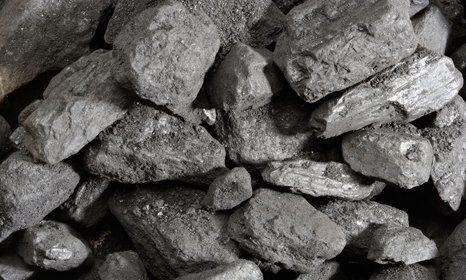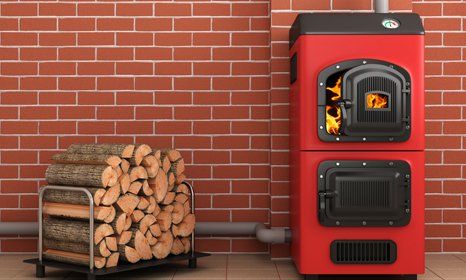Gas Safe & OFTEC registered
Solid Fuel
Solid fuel installation in Spalding
First Rate Plumbing Ltd offers solid wood installation for domestic heating premises to customers in Spalding, Boston, Peterborough, Grantham and the surrounding areas.
Why do you need top-quality dry wood as fuel for solid fuel heating?
Wood has two immense advantages: it is a renewable fuel part of the carbon cycle. Because a burning log can't give out any more carbon than the tree took in while living, and it is considered to be greenhouse gas 'neutral'. Burning wet or 'green' wood wastes heat in making steam and produces flammable volatiles, acidic tars which then will cling to and can very rapidly damage your stove and chimney. Logs should be dried for at least a year, out of doors in free air and protected from the rain. The fine white residue produced when wood partly burns is not ash but the remains of cell walls which can burn if kept hot enough, so don't de-ash a wood fire until absolutely necessary. Wood is not a smokeless fuel, but it can burn without smoke on some specially designed appliances.

Types of solid fuel:
BIOMASS: is a general term for recently-harvested plant material to be used as fuel. As well as wood it includes bagasse (the fibrous residue from sugarcane or sorghum stalks); nut shells; pips and stones from olives and other fruit; straw; hay; dried seeds such as maize, barley or wheat.
PELLETS: Bio-fuel pellets made from wood (or, occasionally, grass) can be burned only on special-purpose stoves and automatic-feed boilers. They offer most of the environmental benefits of natural wood, with greatly improved convenience.
PEAT or TURF: Peat is woody material which has semi decomposed over about 1000 years. It is the earliest stage in the formation of coal. The nearly black moorland or bog peat should be dried and treated as for wood. Peat is highly volatile, easy to light (if thoroughly dry) and almost smoke-free. It will burn on open fires and closed stoves.
LIGNITE or BROWN COAL: Lignite is a natural mineral, intermediate between peat and coal, formed over 4000 years. It lights easily and burns well, though some varieties produce very large quantities of ash. Apart from a small deposit in Ireland it is rarely encountered in the British Isles, but is commonplace in Central and Eastern Europe.
COKE: Coke is natural coal which has been heated in a closed container so that the oily and smoky matter is driven off (the smoke is distilled to make, among other things, aspirin, creosote and ink). Hard metallurgical cokes (like 'Sunbrite') are extremely clean and long lasting, but rather bulky, can be very difficult to ignite and, unlike the softer Low Temperature Cokes will not burn on open fires.
PETROLEUM COKE: Sold as 'Petcoke', 'Longbeach' and under various proprietary names, is made from oil residues. Its exceptional heat, high acid content and lack of protective ash mean that grate and fire bar life will be drastically reduced, unless your fire has special chromium alloy bars. It is rarely sold unless mixed with another, less reactive, fuel.
HOUSECOAL: A general term for whatever form of coal is commonly supplied for domestic use. In the UK and Ireland it is bituminous coal, in North America it is anthracite.
SLACK: Dusty bituminous coal residues, 'nutty slack' if it contains significant lumps, while BREEZE has a similar meaning for coke.

Prompt and professional installation service
We can offer our customers a full range of solid fuel installations. We also offer a no obligation quotation/estimate service.
We accept forms of payment in cash, cheque and BACS payment.
Thank you for your speedy, reliable service
- Mrs J Dawes of Spalding
For solid fuel installations give us a call on
01775 516610 or 07745 828974
01775 516610 or 07745 828974
Thank you for contacting us.
We will get back to you as soon as possible
We will get back to you as soon as possible
Oops, there was an error sending your query.
Please try again later
Address:
First Rate Plumbing Ltd
Garners Cottage, Quadring Bank, Gosberton Westhorpe, Spalding, Lincolnshire, PE11 4LQ
© 2024. The content on this website is owned by us and our licensors. Do not copy any content (including images) without our consent.

